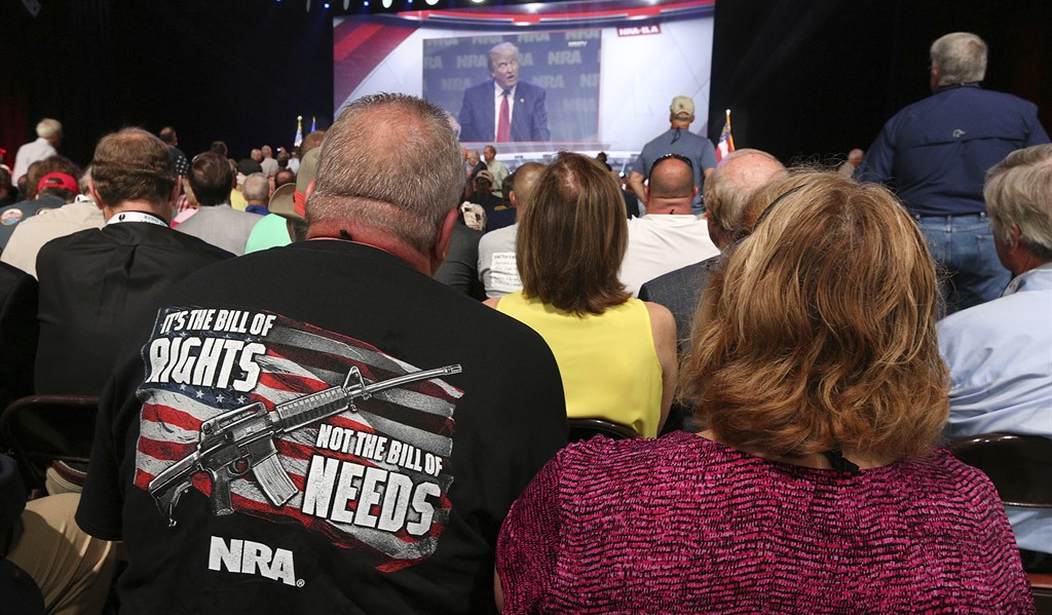When Hunter Biden was convicted a few weeks ago on federal gun charges, the response from NRA-ILA executive director Randy Kozuch was succinct and to the point: "The National Rifle Association has always stood for the lawful use and possession of firearms. Mr. Biden's documented lifestyle choices at the time of purchasing a firearm made him a prohibited person under current law."
Now, however, the NRA is taking a more nuanced approach to the various prohibitions that preclude felons and others from lawfully possessing a firearm. In a new piece entitled "Felonies Aren't What They Used To Be", the organization makes the case that we've overcriminalized society; citing (among others) civil rights attorney Harvey Silvergate and Supreme Court Justice Neil Gorsuch and their complaints about the flood of felony offenses that have been placed into statute over the past few decades.
The 2021 Supreme Court case Lange v. California involved the question of whether, under the Fourth Amendment, a law enforcement officer may always pursue an individual suspected of having committed a misdemeanor into a home without obtaining a warrant. The Court held that such a categorical exemption to the warrant requirement was impermissible.
During oral arguments there was much discussion on how to treat misdemeanor versus felonious conduct in such circumstances. Understanding the creeping expansion of the definition of felony, Gorsuch defended broad Fourth Amendment protections, noting,
we live in a world in which everything has been criminalized. And some professors have even opined that there’s not an American alive who hasn’t committed a felony in some – under some state law.
Gorsuch went on to explain,
what qualified as a felony at common law was -- were very few crimes and they were all punished by the death penalty usually, and today pretty much again anything or everything can be called a felony.
In 2009, civil rights attorney and co-founder of the Foundation for Individual Rights and Expression Harvey Silverglate published the provocative book Three Felonies A Day: How the Feds Target the Innocent. The thesis of the book is that with the United States’ departure from the common law, almost every American is unwittingly guilty of a felony under the ever-expanding thicket of vague federal and state statutes and regulations.
Which of course, means almost every American could be stripped of their Second Amendment rights, even if they're convicted of non-violent offenses.
The NRA concludes that the "wild expansion of felonies" isn't going to be curbed anytime soon, which is why it's incumbent on the courts to conduct a "serious examination as to the legality and efficacy of blanket prohibitions on felons possessing firearms."
While Donald Trump's name never comes up in the NRA's column, the organization did point out that "in recent years, many on the political left had encouraged use of the politically correct term 'justice-involved individual' to refer to those convicted of, even serious, crimes." But that all changed on May 30, when Donald Trump was convicted on 34 felony counts in a New York courtroom. After that, the NRA says, "the great and the good rediscovered the pejorative 'felon'.”
Now, a cynic could suggest that's when the NRA discovered that not all felonies are created equal as well. Would the organization have decided it's time to revisit prohibited person statutes if their endorsed candidate for president wasn't a convicted felon? I have no idea, but even if that's what prompted the group to issue its call to action, that doesn't mean the NRA is off-base in its suggestion. There are tens of thousands of Americans who've paid their debt to society, pose no danger to themselves or others, but are still unable to access their right to keep and bear arms without fear of being sent back to prison.
And there are signs that the Supreme Court is already taking a look at the current statutes. In Rahimi, the Court took pains to note that temporarily depriving someone of their right to possess a gun after a judge has found them to be a danger to others is constitutional, but Gorsuch pointed out that the Court wasn't addressing or answering whether non-violent felons could be barred forevermore from exercising their Second Amendment rights. The justices have been keeping hold of a half-dozen prohibited persons cases until after Rahimi was decided, and there's a good chance that in the near future SCOTUS will signal that it too believes its time for a serious examination of the blanket prohibitions that are currently in place.








Join the conversation as a VIP Member